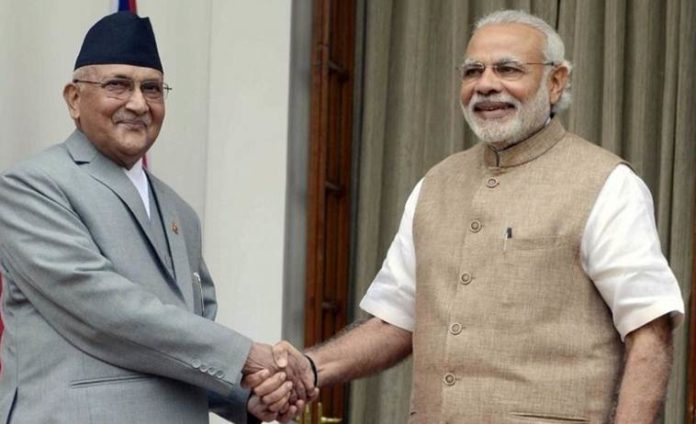New Delhi (NVI): India today said that it deeply values its civilizational, cultural and friendly relations with Nepal, ahead of a vote on a constitutional amendment bill in the lower house of Nepalese Parliament, to amend the Himalayan country’s political map.
“India deeply values its civilization, cultural and friendly relations with Nepal. Our multi-faceted bilateral partnership has expanded and diversified in the recent years with increased focus and enhanced Government of India’s assistance on humanitarian, development and connectivity projects in Nepal,” MEA spokesperson Anurag Srivastava said today.
The External Affairs spokesperson also highlighted India’s continued support to friendly neighbouring countries including Nepal, in line with Prime Minister Narendra Modi’s initiative to chart out a common strategy to combat COVID-19 in the region.
“India has extended all possible technical, medical and humanitarian assistance to Nepal. We have supplied about 25 tonnes of medical aid to Nepal including Paracetamol and hydroxy chloroquine (HCQ) medicines, test kits and other medical supplies,” the MEA spokesman said.
He further added that the Government of India has also ensured that there is no untoward disruption in trade and supply of essential goods to Nepal, despite the lockdown on both sides. “India has also helped in repatriation of Nepalese nationals stranded abroad on humanitarian grounds,” he added.
India’s comments come ahead of the crucial vote in Nepal’s parliament that will decide on the amendments in the new Nepal may that shows Indian territories of Kalapani, Lipulekh and Limpiyadhura as its own, drawing a sharp reaction from New Delhi.
Nepal PM KP Sharma Oli had on May 18 chaired a Cabinet meeting in which the new map of the country featuring the Indian territories of Kalapani, Lipulekh, and Limpiyadhura was approved.
Addressing the Parliament on May 19, the Nepal PM claimed that India had made the aforesaid territories “disputed” by stationing its Army there. He vowed to reclaim these territories from India through diplomatic efforts.
Reacting to Nepal incorporating parts of Indian territory in its official map on May 20, the Ministry of External Affairs slammed this “unilateral act”.
Maintaining that this move was not based on historical facts and evidence, MEA official spokesperson Anurag Srivastava had observed that this was contrary to the understanding between the two countries to resolve boundary disputes through dialogue.
Apart from this, on May 31, the Nepalese government had moved a constitutional amendment bill that seeks to make an alteration in the country’s national emblem and the political map which includes an additional 370 sq km that also features in the Indian map.
Earlier in May, the Oli government had objected to India’s new road from Dharchula to Lipulekh as part of the Mansarovar Yatra route, and which came out with a new map, adding to it an area of 370 sq km at the tri-junction of Nepal, India and China (Tibet) that India claims is its territory.








